A Turkish court on July 10 annulled a 1934 government decree that had turned Istanbul’s Hagia Sophia into a museum, opening the way for the sixth-century building to be converted back into a mosque.
President Tayyip Erdogan, whose ruling AK Party sprung from political Islam, has said the cavernous domed building should revert to being a place of Muslim worship.
Hagia Sophia is nearly 1,500 years old and served as one of the most exalted seats of Christian and then Muslim worship in the world, meaning that any change to its status will have a profound impact on followers of both faiths. It is also a UNESCO World Heritage Site.
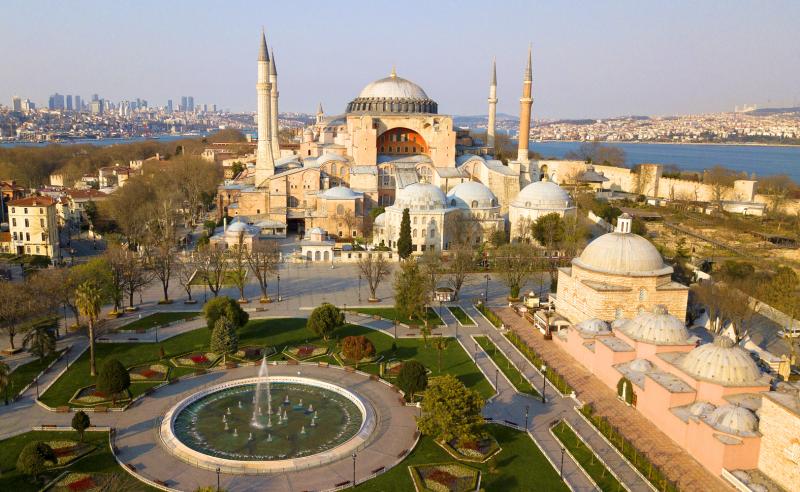
Photo: EPA-EFE 照片:歐新社
Hagia Sophia, or “Divine Wisdom” in Greek, was completed in 537 by Byzantine emperor Justinian.
The vast structure overlooked the Golden Horn harbor and entrance to the Bosphorus from the heart of Constantinople. It was the center of Orthodox Christianity and remained the world’s largest church for centuries.
Hagia Sophia stayed under Byzantine control — except for a brief seizure by Crusaders in the 13th century — until the city was captured in 1453 by Muslim forces of the Ottoman Sultan, Mehmet the Conqueror, who converted it into a mosque.
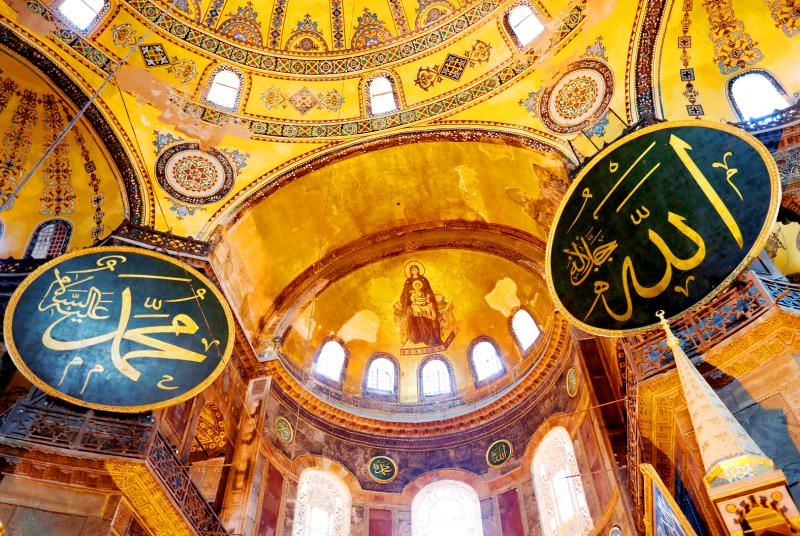
Photo: Reuters 照片:路透
The Ottomans built four minarets, covered Hagia Sophia’s Christian icons and luminous gold mosaics, and installed huge black panels embellished with the names of God, the prophet Mohammad and Muslim caliphs in Arabic calligraphy.
In 1934 Turkey’s first president, Mustafa Kemal Ataturk, forging a secular republic out of the defeated Ottoman Empire, converted Hagia Sophia into a museum, now visited by millions of tourists every year.
Erdogan, who has championed Islam and religious observance during his 17-year rule, supported the Hagia Sophia campaign, saying Muslims should be able to pray there again and raised the issue — which is popular with many pious AK Party-voting Turks — during local elections last year.

Photo: AP 照片:美聯社
Turkish pollster Metropoll found that 44 percent of respondents believe Hagia Sophia was put on the agenda to divert voters’ attention from Turkey’s economic woes.
The pro-government Hurriyet newspaper reported last month that Erdogan had already ordered the status be changed, but that tourists should still be able to visit Hagia Sophia as a mosque and the issue would be handled sensitively.
Outside Turkey, the prospect of change has raised alarm.
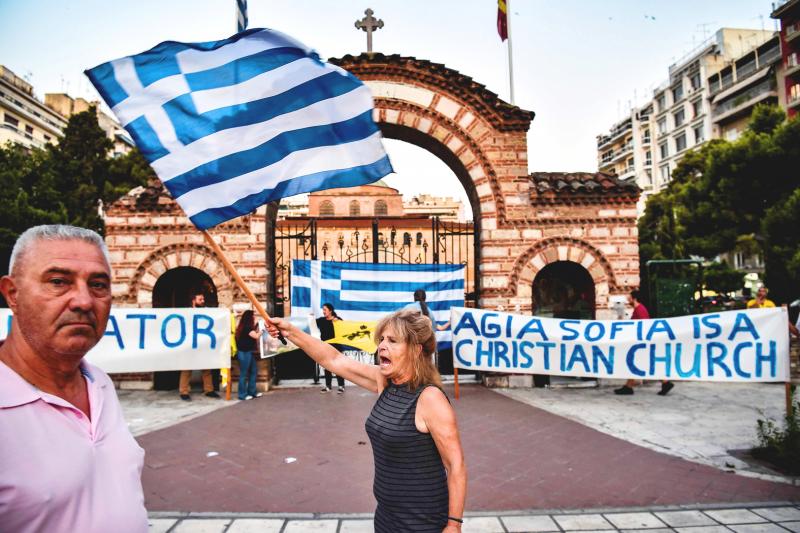
Photo: AFP 照片:法新社
Neighboring Greece, an overwhelmingly Orthodox country, said Turkey risked opening up a “huge emotional chasm” with Christian countries if it converts a building which was central to the Greek-speaking Byzantine empire and Orthodox church.
Pope Francis on July 12 joined an international chorus of condemnation of Turkey’s decision to convert Istanbul’s iconic Hagia Sophia landmark back into a mosque. “I think of Hagia Sophia, and I am very saddened,” Pope Francis said towards the end of his midday sermon in Saint Peter’s Square.
Turkey has criticized what it says is foreign interference. “This is a matter of national sovereignty,” Turkish Foreign Minister Mevlut Cavusoglu said. “What is important is what the Turkish people want.”
(Reuters)
一九三四年所頒布的一項政令,將伊斯坦堡的聖索菲亞大教堂改為博物館。土耳其法院七月十日廢除了此政令,為這座建於六世紀的建築改為清真寺鋪路。
土耳其總統塔伊普‧艾爾多安所屬的執政黨「正義與發展黨」源於「政治伊斯蘭」〔屬基本教義派,主張政教合一〕,他表示,這座有巨大深廣圓頂的建築應回復為穆斯林的禮拜場所。
聖索菲亞大教堂有近一千五百年之歷史,曾為世界上最崇高的基督宗教〔包含東正教、天主教、基督新教等〕及後來的穆斯林敬拜場所之一,這表示其狀態的任何改變都會對基督宗教與伊斯蘭教之信徒造成深遠的影響。聖索菲亞大教堂也被聯合國教科文組織列為世界遺產。
希臘文「Hagia Sophia」(聖索菲亞)意為「神聖智慧」,由拜占庭帝國〔即東羅馬帝國〕查士丁尼大帝所建,於西元五三七年竣工。
其宏偉的建築俯瞰金角灣港口,以及由君士坦丁堡中心通往博斯普魯斯海峽的入口。它是東正教的中心,曾為世界上最大的教堂,稱霸時間有數世紀之久。
聖索菲亞大教堂一直由拜占庭帝國所控制──除了在十三世紀短暫被十字軍佔領──直到西元一四五三年,鄂圖曼帝國蘇丹「征服者穆罕默德」率穆斯林軍隊攻佔該城,並將聖索菲亞大教堂改為清真寺。
鄂圖曼土耳其人建了四座宣禮塔,將聖索菲亞大教堂的基督宗教聖像及閃閃發光的金色馬賽克鑲嵌畫遮蓋住,並裝上數個巨大黑色牌子,以阿拉伯文書法寫著上帝、先知穆罕默德與穆斯林哈里發之名。
一九三四年,土耳其首任總統穆斯塔法‧凱末爾‧阿塔圖克由戰敗的鄂圖曼帝國中建立起一世俗〔非宗教〕共和國,並將聖索菲亞大教堂改為博物館,如今每年有數百萬遊客參訪。
艾爾多安執政十七年來,他一直倡導伊斯蘭教與宗教儀規,他支持聖索菲亞清真寺化運動,稱穆斯林應當可以再去那裡祈禱,並在去年的地方選舉期間提出此議題──在許多投票給正義與發展黨、篤信宗教的土耳其人心中,此議題很受歡迎。
土耳其民調機構Metropoll發現,有百分之四十四的受訪者認為,聖索菲亞大教堂清真寺化此時被提出,是為了轉移選民的注意力,減少對土耳其困頓經濟的關注。
土耳其親政府的《自由報》上月報導,艾爾多安已下令將聖索菲亞改為清真寺,但遊客仍可進入參觀,且相關問題會有細緻的處理。
此山雨欲來的改變,在土耳其國境外引發了驚慌與擔憂。
絕大多數民眾信仰東正教的鄰國希臘表示,土耳其若將一座對講希臘語的拜占庭帝國與東正教教會極重要的建築改宗,就可能造成與基督宗教國家之間「巨大的情感鴻溝」。
教宗方濟各七月十二日也加入國際言論,譴責土耳其決定將伊斯坦堡代表性的地標聖索菲亞大教堂改為清真寺。「我念及聖索菲亞大教堂,我感到非常悲傷」,教宗在聖彼得廣場午間佈道結束時說道。
土耳其認為這些言論是外國的干涉而加以批評。土耳其外交部長梅夫呂特‧恰武什奧盧說:「這是國家主權問題」。「土耳其人民想要的,才是重要的事」。
(台北時報林俐凱編譯)
FOLLOW UP 讀後練習
Clash or convergence of civilizations?
The contested fate of Hagia Sophia is like a metaphor for the geopolitical struggle of Istanbul, originally named Byzantine when established in 660 BC by the Greeks, and then renamed Constantinople in 330 AD as the capital of the East Roman Empire (aka the Byzantine Empire).
The “intermediate region” the city locates is perfectly placed for a “clash of civilizations,” a thesis proposed by political scientist Samuel Huntington in 1992 at the end of Cold War. Huntington’s model not only explains the struggle between the Christian (Western) and Islamic worlds, but also serves as a rationale for Western interference in the Middle East.
(Lin Lee-kai, Taipei Times)
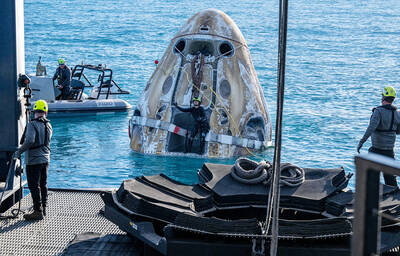
The human body was not built for spaceflight, with its microgravity conditions, exposure to high-energy radiation and other issues. As a result, trekking beyond the Earth’s confines causes many physiological changes that affect an astronaut’s health. The issue gained new currency with the March mission to return astronauts Butch Wilmore and Suni Williams to Earth after they were stranded on the International Space Station (ISS) for nine months. WHY IS SPACE TRAVEL TOUGH ON THE HUMAN BODY? The human body evolved over millions of years to function optimally in Earth’s environment, which includes its gravity, atmospheric composition and relatively low levels of
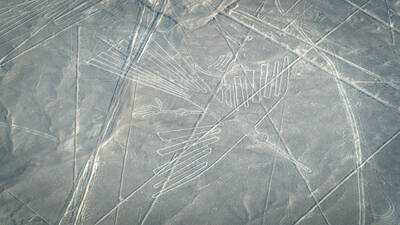
In another application of artificial intelligence, a team of archaeologists from the Nazca Institute at the University of Yamagata in Japan, in collaboration with IBM Research, have discovered 303 new geoglyphs in the “Nazca” region of Peru. Though these figures are not nearly as large as their Nazca Lines counterparts, their discovery has helped enhance the understanding of the transition from the Paracas culture to the Nazca culture. The AI model, assisted by low-flying drones, was able to accomplish what the naked eye could not—quickly and accurately spotting the smaller relief-type geoglyphs in the desert area. While it previously
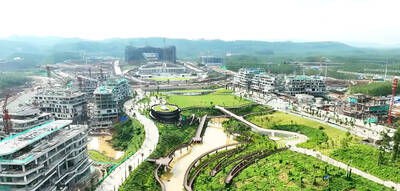
Indonesia is undertaking an ambitious project to relocate its capital from Jakarta to Nusantara, a new city in the province of East Kalimantan. This bold endeavor aims to address the severe environmental challenges and urban congestion plaguing Jakarta. The current capital city struggles with acute air pollution, frequent flooding, and rapid land subsidence. Experts predict that by 2050, a third of Jakarta could be submerged. The primary causes include excessive groundwater extraction and rising sea levels attributed to climate change. Moreover, with a population of over 10 million, it’s very much the economic center of the country. Unfortunately, this

Dos & Don’ts — 想想看,這句話英語該怎麼說? 1. 王老師很負責,每天都準時到學校。 √ Miss Wang is conscientious. She comes to school on time every day. χ Miss Wang is very responsible. Every day she goes to school on time. 註︰一個人很認真、負責、敬業,英文通常用 conscientious 來表達,它的名詞是conscience(良心)。responsible 接在 be 動詞之後是指對某事負責,也可指做錯事時該負的責任,因此“她該負責”英文是 She is responsible for it.。如果某人很負責、值得信賴,可以託付重任,可說 She / He is a responsible person.。 2. 他個子不高。 √ He is not tall. χ His body is not tall. χ He is not high. 註︰high 通常指「物」的高大,tall 則指「人或細長物」的「高」。但講人的高度,有數字時可以說: He is six feet high. He is six feet tall. 3. 我能占用你幾分鐘嗎? √ Can you spare me a few minutes? χ May I occupy you a few minutes? 註︰spare:騰出,省下。不顧句型及前後文,只把學過的英文詞彙的中文解釋任意還原為英文時很容易造出這種中式的英文句子。 4. 讓我想想看。 √ Let me think it over. √ Let